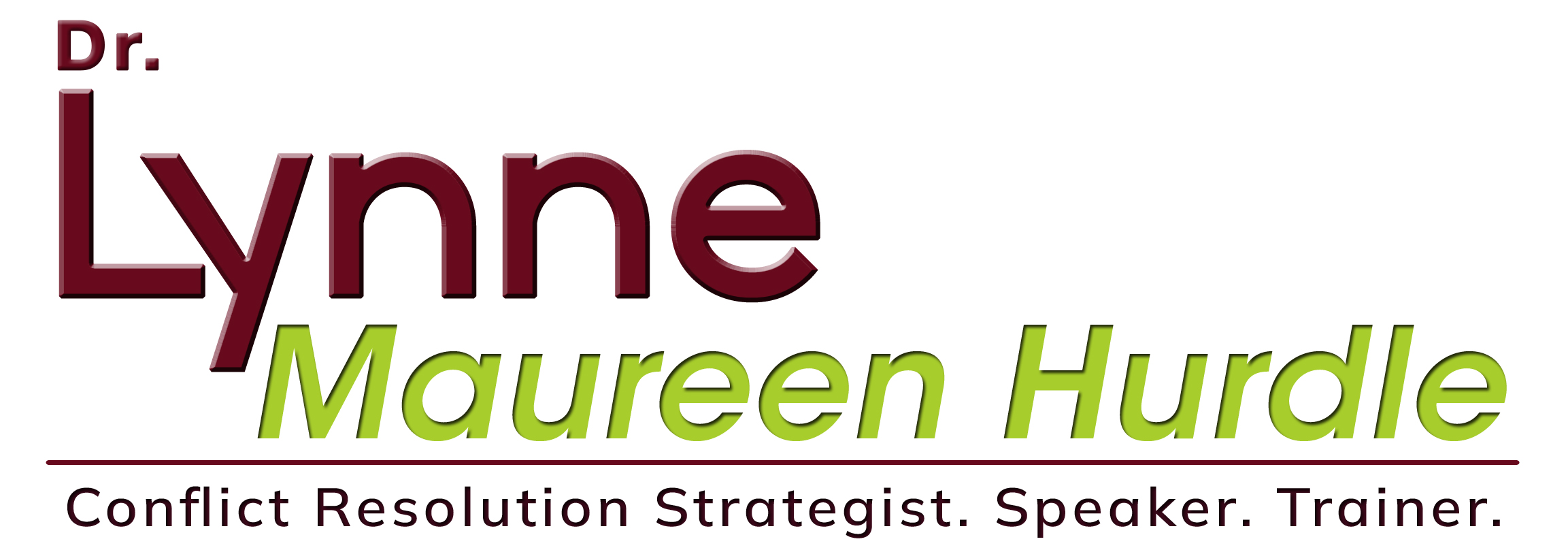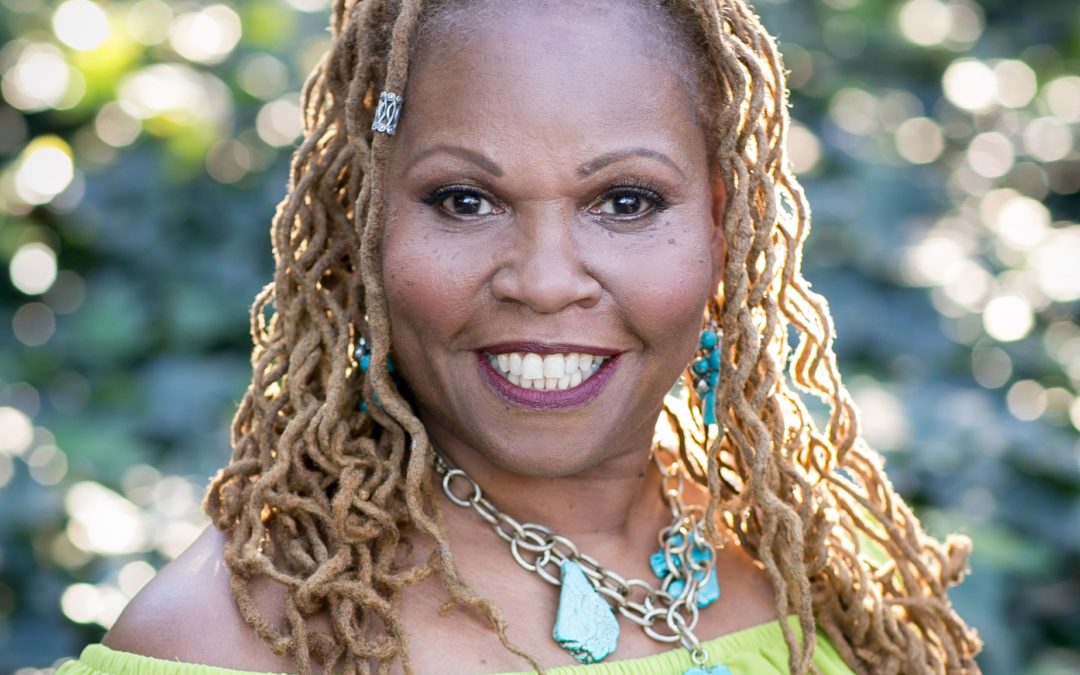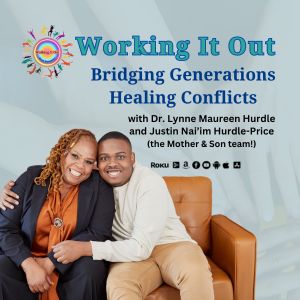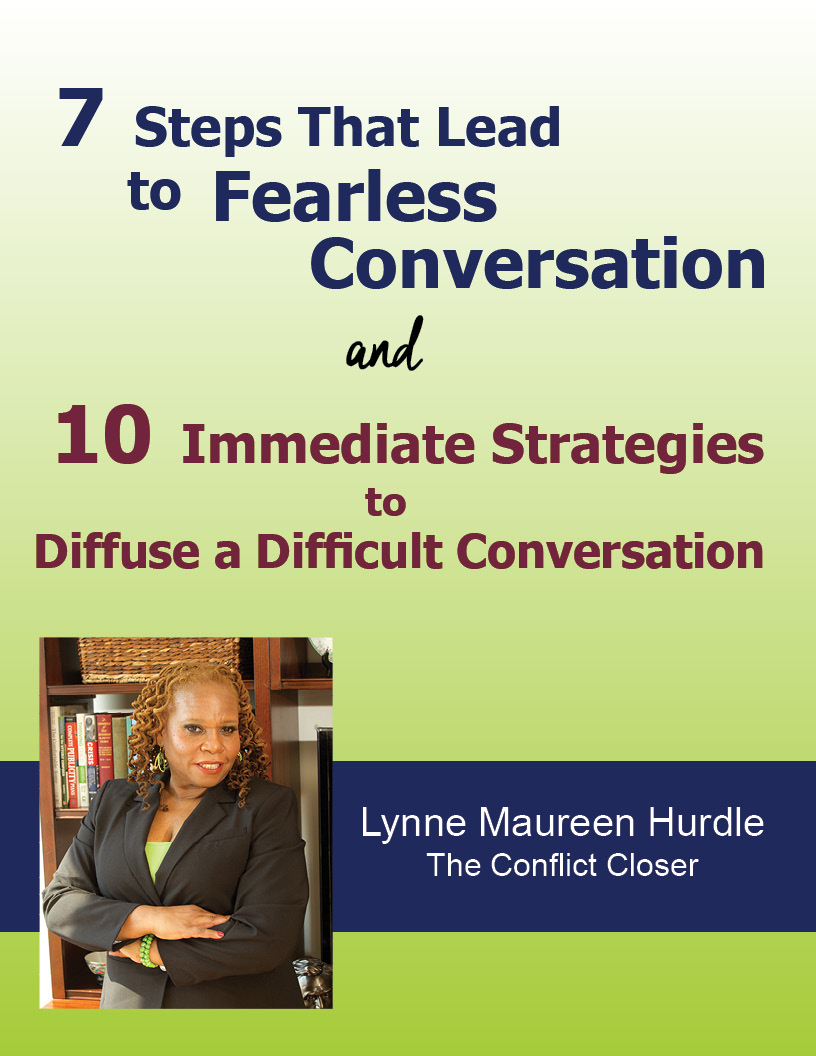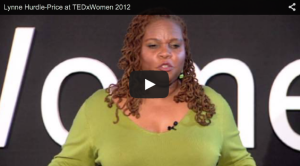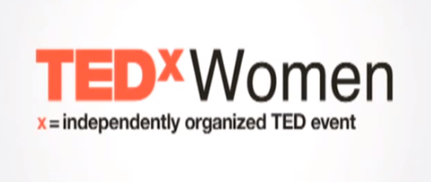So, it seems as if I broke my own rule. You see, I always pride myself as a facilitator who never asks her audience to do anything I wouldn’t do. In my last two blogs, I asked you to take some major steps in doing your own personal work on conflict. This work is deeply personal, time-consuming and important. It fact, I consider it urgent given the state of the world today. I laid out the questions for you and said you have the opportunity to come up with the answers.
But what about my own answers? Am I willing to lay them out for you to see and learn from? I am absolutely. So, let’s start with the first three questions on discovering the roots of conflict and how it was constructed for us.
1. How did the people who raised you handle conflict?
I was raised by my mom and dad. We lived together in the Bronx and I have an older sister. She is actually only 13 months older, but still. I learned very quickly that conflict was a very bad thing and I learned it on a critically micro level that affected everything on the macro level. Conflict in its most basic form is differing opinions that offer opposition to something.
My sister and I were not ever to offer opposition to anything that my mother said, thought or acted on… ever! She was the boss and even my father did not stand up to her. Any opposition was met with yelling, screaming, ultimatums, shutdowns and absolutely no conversation whatsoever. We were not to have an opinion other than hers. I recognize that I am breaking one of those sacred cultural rules against airing your dirty laundry in public, but for the sake of learning, I am going to risk it. After all, it is just my honest take on things.
While my mom is not here to defend herself (she died in 1994)… Oh yes, another cultural rule smashed (don’t speak ill of the dead)… Hey, I’ve already stepped out there, might as well go all the way.
2. What did that teach you about conflict?
I learned to shut down completely by the time I was 8 years old. Yeah, it happened early. I did not like the feelings associated with disagreements. Guilt, fear, shame, embarrassment, frustration, confusion, humiliation, sadness, disappointment and anger always came up. The list really does go on. I learned that my feelings and thoughts were not worthy of expression and so you hide, avoid, run away from conflict.
I also learned to lie when asked my viewpoint and unfortunately that lasted well into adulthood. It wasn’t just my immediate family that did not do conflict well, my extended family, in particular my aunts, my dad’s five sisters did conflict horribly. So, I got a saturation in the construct of conflict as extremely negative and designed to make everyone feel badly and yet I was screaming inside to talk!
3. How did it/does it show up when conflicts arise?
For decades, I was a hot mess in relationships. I could not express the simplest thought of disagreement and challenge to any relationship conversation. I simply could not talk. I would try, but nothing would come out. I simply went along with what was going on and could never have a deep conversation even after I entered the conflict resolution field. I was able to grasp the concepts and actually teach them, but could not take the lessons home to apply them until my sons. Yes, my sons who I taught the skills to, who at very young ages held the mirror up to my face and said essentially “you are not using your own skills.”
I can remember when my oldest son, Jabari was 8, he listened to my lecture to him on not listening to me… and it was long ya’ll… and he endured it and then smiled and said, “Well mom, it seems to me if you want us to listen to you, you need to start by listening to us. You are not a very good listener.”
BOOM! He was right. My sons were also the ones who called me on yelling at them way too much and held strong until I did my work and really started using different methods to get heard. I am much better today at communicating honestly and doing it without yelling. The inclination to hide or yell is still there, but I use my skills to manage it. It is still a work in progress and one which I will always be committed to getting better at. I recognize the negative construct of conflict that was built for me and I know that is not how I choose to view it.
Whew!!! So now what about you? Did you do your work? Did you answer your questions? I would love to hear from you. Let’s do this work together and make 2019 a year of real change.
Take the Leadership Assessment Quiz to find out how healthy or unhealthy your team is.
Also, check out our next event called, Circling Back to Self: Women of Color Fighting for a Worthy Pause.
